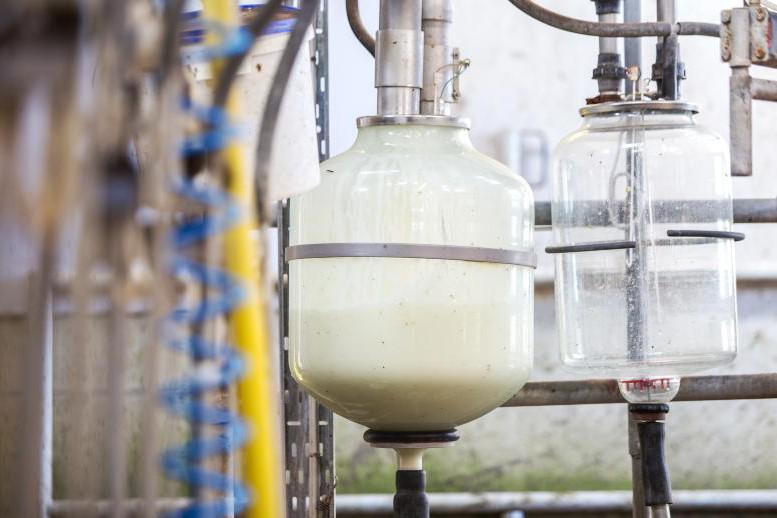“We are milking a small number of cows and selling bottled milk and soft cheese from our dairy farm. When we sell product from the farm, what legal responsibilities have we if someone gets sick or claims to get sick following consumption of any of our products?”
Starting a food business from home can be a rewarding business venture but it is only for those committed to maintaining the highest level of hygiene and food safety.
While the Department of Agriculture banned the sale of raw cow’s milk in 1996, an EU directive in 2006 superseded this ban because the EU stated that the sale of raw milk must be regulated by each national authority. In the absence of specific regulations in Ireland, raw milk may be sold to the public. While the Department of Agriculture signalled an intention to introduce an outright ban on the sale of raw liquid milk, I understand that it has now signalled an intention to regulate rather than ban the sale of raw milk.
Other EU countries including Britain and Northern Ireland have introduced a regulated system whereby producers who undertake to operate to specific production and labelling protocols may continue to sell raw milk to the public. While there appears to be no similar protocol at present in
Ireland, it is likely that one will be introduced in the not too distant future, so you should keep yourself appraised of that.
In the meantime, the hygiene and public health protection rules for the production and processing of milk and dairy products are set out in a series of EU regulations, commonly known as the Hygiene Package.
These regulations lay down standards for everything from the production of raw milk on farms to the packaging and labelling of finished dairy products leaving the processing establishments.
The main legislative requirements you should be aware of in setting up your food business are as follows:
Registration of the business with the Health Service Executive (HSE) and the Department: You have to register as a “food business” with your local environmental health officer. You should contact your local HSE office in this regard. The milk quota regulations also provide that a person shall not operate as a direct seller of milk unless the producer is entered in the Register of Direct Sellers. You should contact the milk policy division of the Department of Agriculture to ensure compliance with milk quota legislation.Hygiene rules to be complied with: Food hygiene legislation (Regulation 852/2004/EC) sets out the rules that all food businesses have to comply with. It covers things like temperature control, HCCP (a food business’s food safety management system), equipment, transport, waste, personal hygiene and training. Legislation on the general principles of food law makes it illegal to place unsafe food on the market. You should familiarise yourself with this legislation, which can be downloaded on the Food Safety Authority website.
Training: The law requires that you must be trained and/or supervised, according to the level of activity you are carrying out. Doing a training course is not always necessary, depending on your level of experience and knowledge of food safety. It might be sufficient to use the FSAI training guides available on their website. The FSAI leaflet “Food Safety Training – a Legal Requirement for Everyone in the Food Industry” is a valuable resource to help you decide how to fulfill your training requirements.
Food safety management systems based on the principle of HACCP (hazard analysis and critical control points): As a food business operator, you must ensure that you have a system in place to ensure the food you produce is safe. This should allow you to identify where things could go wrong and have procedures to deal with these issues as, and when, they arise. The system can be very simple or complex, depending on the size and scale of your food business. The FSAI has produced a pack “Self Catering – Your Guide to Making Food Safely”, which can assist in putting a food safety management system in place. It is available from the FSAI and costs €60.
Traceability systems and recall procedures: Traceability regulations require that food business operators must be able to say who supplied them with ingredients and, in turn, who they supplied their food to. This does not mean that food businesses have to identify every consumer who bought their food but the traceability information must be made available to the competent authority on demand. The legislation also requires that if you suspect that a food you have produced or distributed may not be safe, you must inform the competent authority immediately and withdraw or recall the food as necessary.
Insurance: There are three types of liability insurance that usually apply to food business operators:-1) Public liability insurance is to indemnify your business in the case of a claim by a member of the public as a result of their interaction with your business, e.g. if someone trips over something that falls or is knocked from your display at a market.
2) Product liability insurance is to indemnify your business in the case of a claim by a member of the public, as a result of their interaction with a product sold by your business, i.e. food and drink supplied by you.
3) Employers’ liability insurance is to indemnify your business in the case of a claim by an employee, as a result of experiencing injury or harm in the course of their work for you.
The FSAI is responsible for enforcing food legislation in Ireland and carries out this enforcement through service contracts with official agencies, such as the HSE and the Department of Agriculture. While I have highlighted the main aspects to be complied with at the start of your food business, there is lots of further information available on the FSAI website.
“We are milking a small number of cows and selling bottled milk and soft cheese from our dairy farm. When we sell product from the farm, what legal responsibilities have we if someone gets sick or claims to get sick following consumption of any of our products?”
Starting a food business from home can be a rewarding business venture but it is only for those committed to maintaining the highest level of hygiene and food safety.
While the Department of Agriculture banned the sale of raw cow’s milk in 1996, an EU directive in 2006 superseded this ban because the EU stated that the sale of raw milk must be regulated by each national authority. In the absence of specific regulations in Ireland, raw milk may be sold to the public. While the Department of Agriculture signalled an intention to introduce an outright ban on the sale of raw liquid milk, I understand that it has now signalled an intention to regulate rather than ban the sale of raw milk.
Other EU countries including Britain and Northern Ireland have introduced a regulated system whereby producers who undertake to operate to specific production and labelling protocols may continue to sell raw milk to the public. While there appears to be no similar protocol at present in
Ireland, it is likely that one will be introduced in the not too distant future, so you should keep yourself appraised of that.
In the meantime, the hygiene and public health protection rules for the production and processing of milk and dairy products are set out in a series of EU regulations, commonly known as the Hygiene Package.
These regulations lay down standards for everything from the production of raw milk on farms to the packaging and labelling of finished dairy products leaving the processing establishments.
The main legislative requirements you should be aware of in setting up your food business are as follows:
Registration of the business with the Health Service Executive (HSE) and the Department: You have to register as a “food business” with your local environmental health officer. You should contact your local HSE office in this regard. The milk quota regulations also provide that a person shall not operate as a direct seller of milk unless the producer is entered in the Register of Direct Sellers. You should contact the milk policy division of the Department of Agriculture to ensure compliance with milk quota legislation.Hygiene rules to be complied with: Food hygiene legislation (Regulation 852/2004/EC) sets out the rules that all food businesses have to comply with. It covers things like temperature control, HCCP (a food business’s food safety management system), equipment, transport, waste, personal hygiene and training. Legislation on the general principles of food law makes it illegal to place unsafe food on the market. You should familiarise yourself with this legislation, which can be downloaded on the Food Safety Authority website.
Training: The law requires that you must be trained and/or supervised, according to the level of activity you are carrying out. Doing a training course is not always necessary, depending on your level of experience and knowledge of food safety. It might be sufficient to use the FSAI training guides available on their website. The FSAI leaflet “Food Safety Training – a Legal Requirement for Everyone in the Food Industry” is a valuable resource to help you decide how to fulfill your training requirements.
Food safety management systems based on the principle of HACCP (hazard analysis and critical control points): As a food business operator, you must ensure that you have a system in place to ensure the food you produce is safe. This should allow you to identify where things could go wrong and have procedures to deal with these issues as, and when, they arise. The system can be very simple or complex, depending on the size and scale of your food business. The FSAI has produced a pack “Self Catering – Your Guide to Making Food Safely”, which can assist in putting a food safety management system in place. It is available from the FSAI and costs €60.
Traceability systems and recall procedures: Traceability regulations require that food business operators must be able to say who supplied them with ingredients and, in turn, who they supplied their food to. This does not mean that food businesses have to identify every consumer who bought their food but the traceability information must be made available to the competent authority on demand. The legislation also requires that if you suspect that a food you have produced or distributed may not be safe, you must inform the competent authority immediately and withdraw or recall the food as necessary.
Insurance: There are three types of liability insurance that usually apply to food business operators:-1) Public liability insurance is to indemnify your business in the case of a claim by a member of the public as a result of their interaction with your business, e.g. if someone trips over something that falls or is knocked from your display at a market.
2) Product liability insurance is to indemnify your business in the case of a claim by a member of the public, as a result of their interaction with a product sold by your business, i.e. food and drink supplied by you.
3) Employers’ liability insurance is to indemnify your business in the case of a claim by an employee, as a result of experiencing injury or harm in the course of their work for you.
The FSAI is responsible for enforcing food legislation in Ireland and carries out this enforcement through service contracts with official agencies, such as the HSE and the Department of Agriculture. While I have highlighted the main aspects to be complied with at the start of your food business, there is lots of further information available on the FSAI website.









SHARING OPTIONS